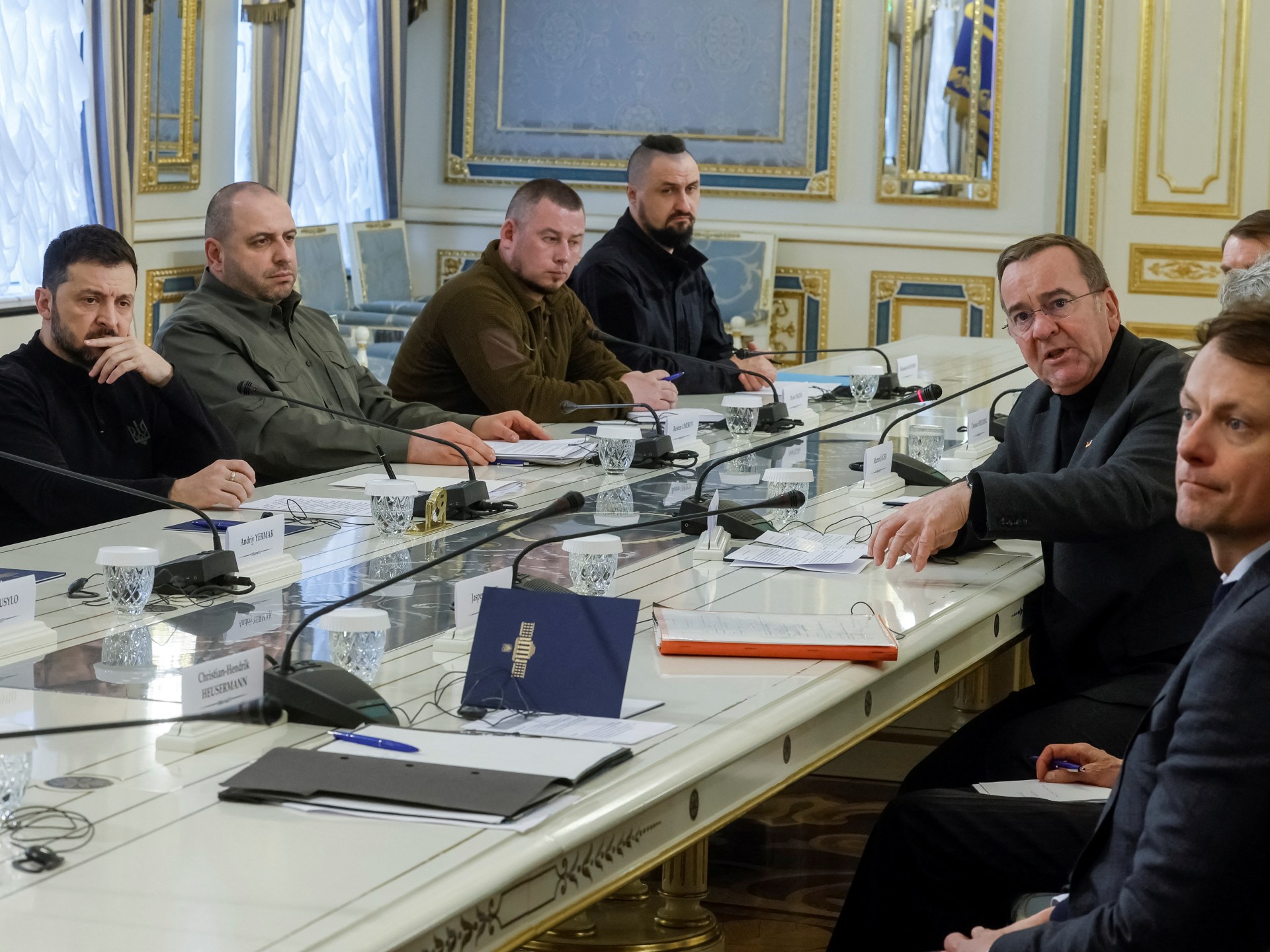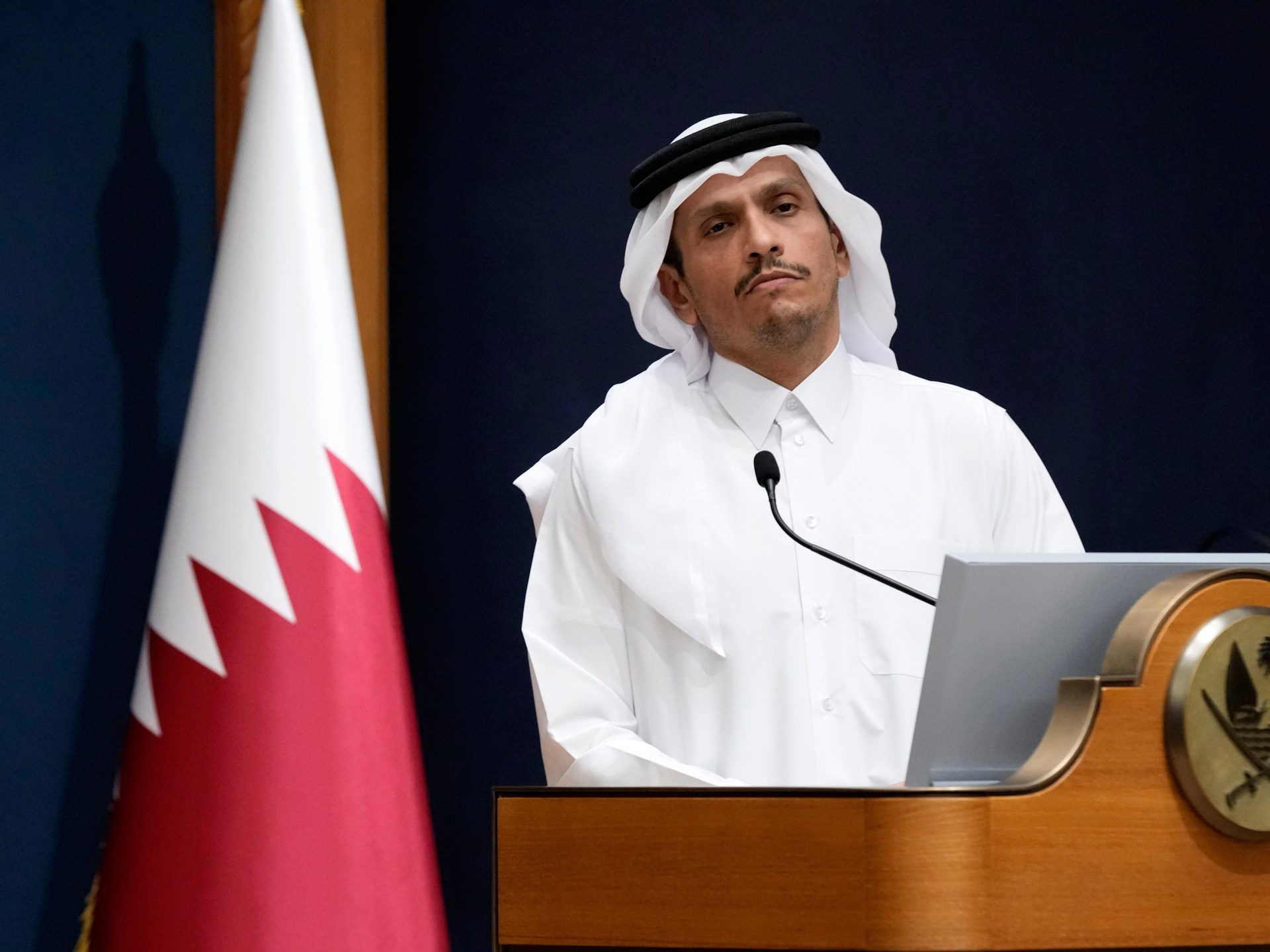

Qatar’s Prime Minister Sheikh Mohammed bin Abdulrahman Al Thani has called for the first phase of the Gaza ceasefire agreement to be fully implemented and said hopes the next phase will be final.
In an exclusive interview with Al Jazeera on Friday, Sheikh Mohammed bin Abdulrahman Al Thani said he now expects “the [UN] Security Council to issue a binding resolution to implement the [ceasefire] agreement.
On Wednesday, Qatar, Egypt and the United States announced that Hamas and Israel have reached a multiphased deal to halt the war in Gaza and exchange Israeli captives held in the Strip for Palestinian prisoners in Israeli jails.
The mediators said the ceasefire in Gaza will go into effect on Sunday. The first phase of the agreement is spread over seven weeks and will see a surge in humanitarian aid, gradual withdrawal of Israeli forces, and the release of Israeli captives in exchange for Palestinian prisoners. The second phase is expected to begin in March, provided the first phase runs smoothly according to Israel.
Advertisement
The Israeli cabinet is expected to ratify the ceasefire deal later on Friday.

Reporting from Amman, Jordan, Al Jazeera’s Stefanie Dekker said that the Israeli government is holding a meeting to discuss the issue.
“This meeting was expected to take place on Saturday, but pressure from mediators has made them start today,” she said.
Sheikh Mohammed noted that Qatar and Egypt played an important role as mediators in the truce talks. He said the joint work of the outgoing Biden administration and members of incoming President-elect Donald Trump’s team were decisive in reaching the ceasefire agreement in Gaza.
He stressed however that Qatar’s position is only a mediator and said “the administration of Gaza after the war is a Palestinian matter.”
Sheikh Mohammed also highlighted the importance of mobilising international support for Gaza and establishing mechanisms to support affected families.
“A humanitarian protocol has been reached regarding the mechanism for delivering aid to prevent blackmail,” he said.
Sanctions ‘not logical’
Besides negotiating a ceasefire deal in Gaza, Qatar is also focused on bolstering relations with Syria’s new de facto administration led by Ahmed al-Sharaa, whose Hayat Tahrir al-Sham (HTS) group led the opposition offensive that toppled Syria’s longtime ruler Bashar al-Assad last month.
Sheikh Mohammed met al-Sharaa in Damascus on Thursday and called for sanctions imposed on Syria to be lifted.
Advertisement
“We have been making efforts to lift the sanctions from the first day of the [Assad] regime’s fall, and we do not want Syria to collapse,” Sheikh Mohammed said.
“The sanctions were imposed on the Assad regime and are not logical now. The new administration is not expected to address international concerns and work for its people under sanctions simultaneously,” he added.
The US and European Union both imposed sanctions on al-Assad and his government for allegedly committing crimes during the war, which began after security forces cracked down on pro-democracy protesters in 2011. Washington and Brussels have not yet made a decision on lifting these sanctions but have begun signalling their interest in cooperating with the new Syrian administration.
Sheikh Mohammed also criticised Israeli moves to occupy the territory near the Golan Heights in southern Syria.
“We reject Israel’s reckless act of incursion in the buffer zone in Syria. We talked with Ahmad al-Sharaa and affirmed the necessity of Israeli
withdrawal and that the incursion should not create a new reality,” he said.
Israel deployed military units last month to the buffer zone, which lies along the Golan Heights and separates Syria and Israel, after al-Assad was toppled. The area has been an officially designated demilitarised zone as part of a 1974 UN-brokered ceasefire.
Related News
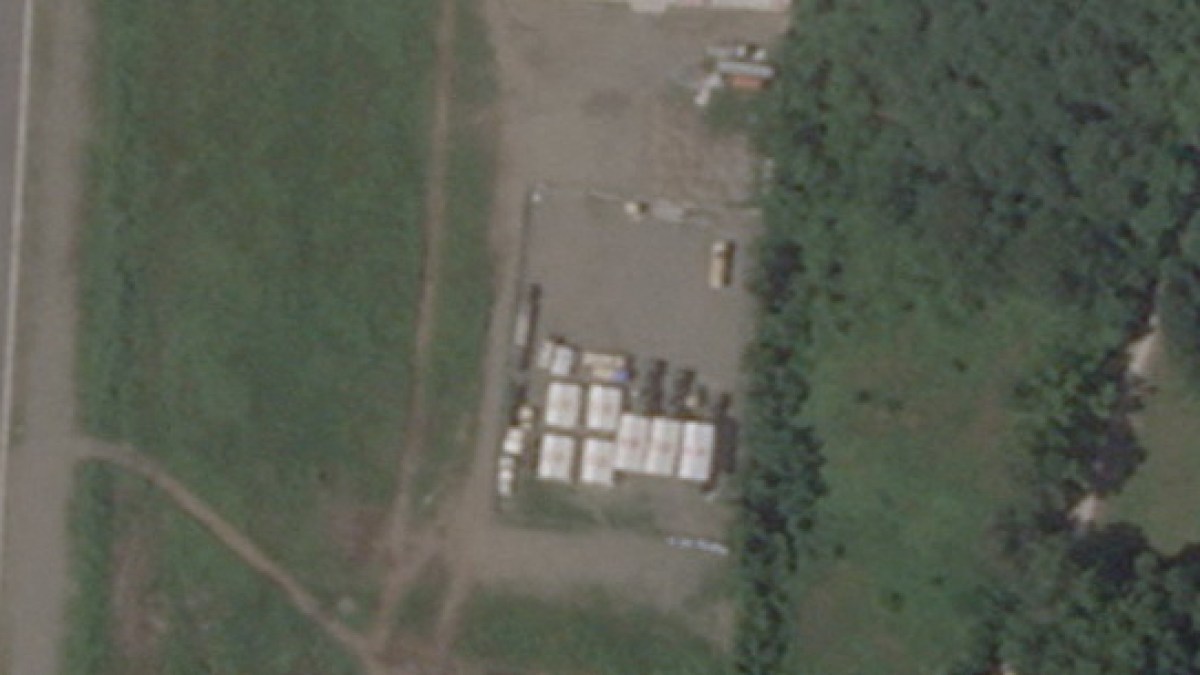
Philippines to buy US Typhon missile system, China says ‘provocative move’
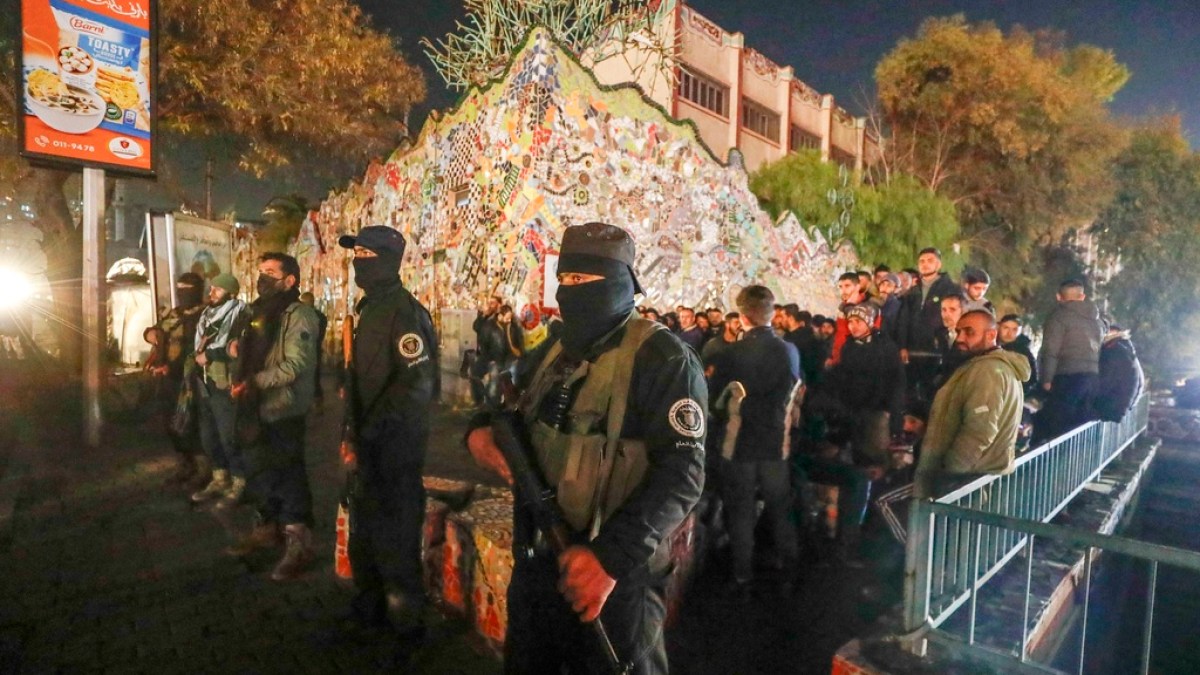
Syria says 14 policemen killed in ambush by forces loyal to al-Assad
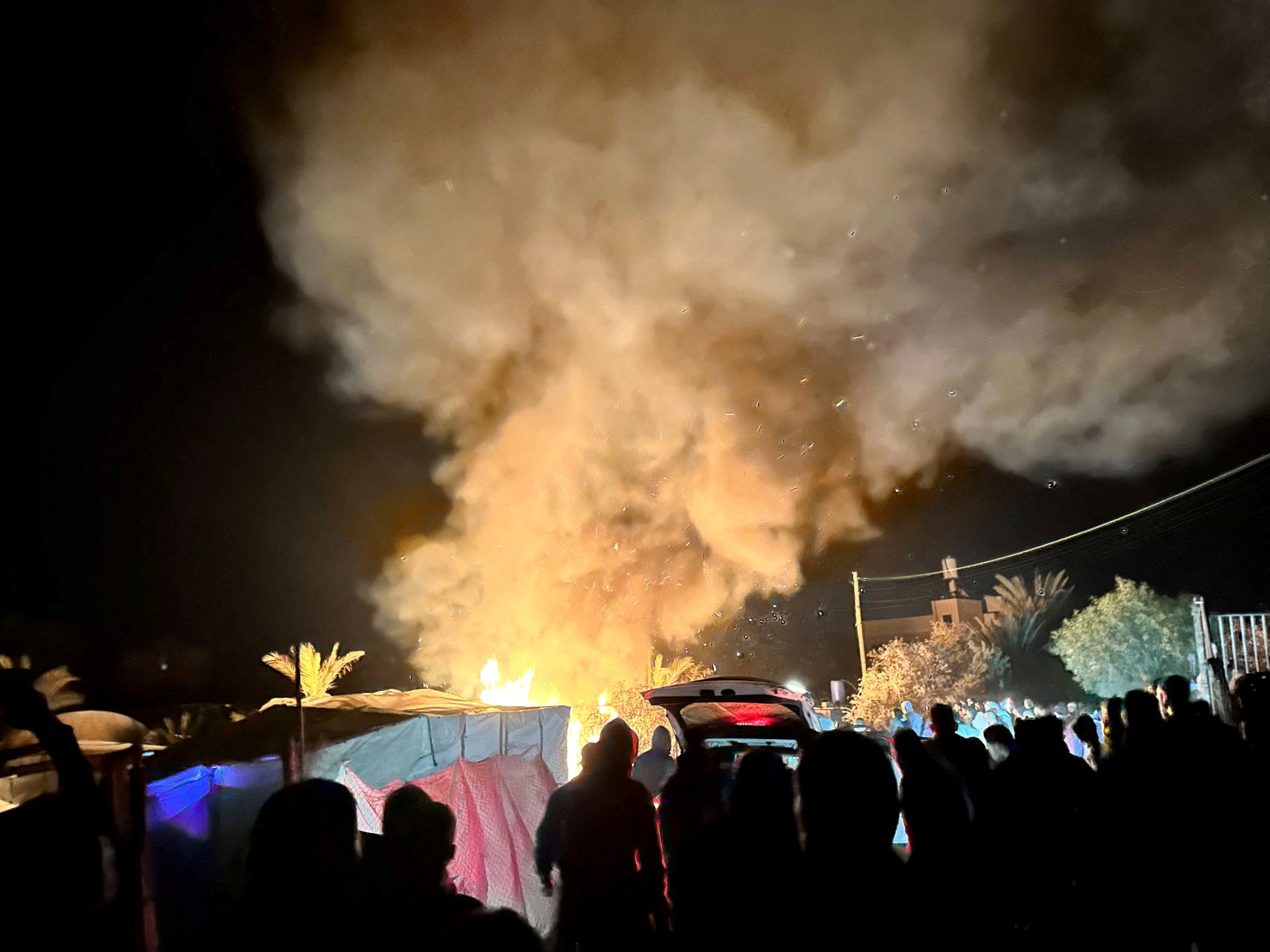
Israel bombs ‘safe zone’, school amid a wave of deadly attacks across Gaza
